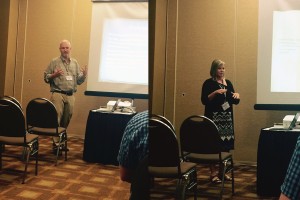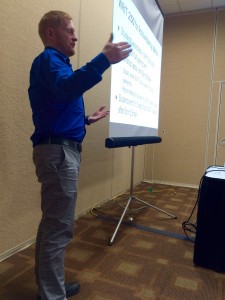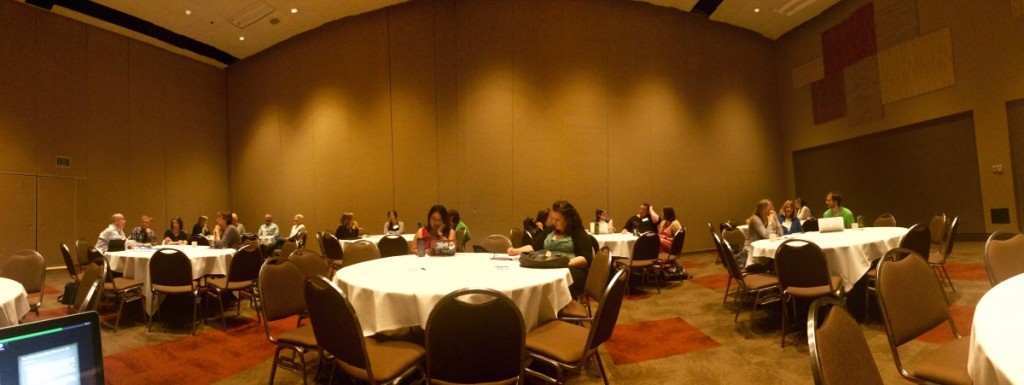Six DWR instructors recently attended the annual Council of Writing Program Administrators (C-WPA) conference in Boise, Idaho. Hosted by the Boise State University from July 16 – 19, 2015, the program featured several sessions featuring DWR instructors.
On Thursday, July 16, Alice Johnston Myatt participated in the Independent Writing Departments and Programs Association’s semi-annual meeting in her role as current vice-president of the IWDPA. The DWR is an active member of the IWDPA, with its roots reaching back to the late 1990s as an affiliate group of the C-WPA.
On Friday, Alice Johnston Myatt of UM and Genevieve Garcia de Mueller of the University of New Mexico led the lively workshop “Addressing Stereotypes in the Writing Program and Academy to Sustain  Marginalized Student Retention: A Collaborative Conversation” (see photo, above). Also on Friday, Guy Krueger, Angela Green, and Bob Cummings presented “Establishing a Freestanding Department of Writing and Rhetoric in the Public Research University: Sharing Experiences and Developing Plans for Sustainability” (see photo, right).
Marginalized Student Retention: A Collaborative Conversation” (see photo, above). Also on Friday, Guy Krueger, Angela Green, and Bob Cummings presented “Establishing a Freestanding Department of Writing and Rhetoric in the Public Research University: Sharing Experiences and Developing Plans for Sustainability” (see photo, right).
On Saturday, Alice Johnston Myatt, Karla Lyles, and Andrew Davis  presented “I, You, We: Balancing Multiple Audiences and Goals in the Design, Implementation, and Sustainment of an Advanced Composition Course with a Writing in the Disciplines Focus,” which focused on the curricular revision of Writing 250, a required course for many UM students (see photo, left).
presented “I, You, We: Balancing Multiple Audiences and Goals in the Design, Implementation, and Sustainment of an Advanced Composition Course with a Writing in the Disciplines Focus,” which focused on the curricular revision of Writing 250, a required course for many UM students (see photo, left).
Attendees also attended many sessions, taking advantage of the time in Boise to learn from peers and writing studies scholars such as Elizabeth Bouquet, Seth Kahn, and Cheryl Ball. The theme of the conference, which focused on Sustainable Writing/Program/Administrators, encouraged all to develop and implement writing instruction practices that persist and sustain students long after their formal classroom instruction ends.


